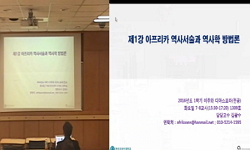The purpose of this paper is to contemplate the immigration process and the transition of the Russian diaspora's position in Baltic States, from medieval times to the present day. Similar to the Baltic Germans, the Russians have significantly influenc...
http://chineseinput.net/에서 pinyin(병음)방식으로 중국어를 변환할 수 있습니다.
변환된 중국어를 복사하여 사용하시면 됩니다.
- 中文 을 입력하시려면 zhongwen을 입력하시고 space를누르시면됩니다.
- 北京 을 입력하시려면 beijing을 입력하시고 space를 누르시면 됩니다.

발트 3국 내 러시아 디아스포라의 사회적 지위 변화 연구 = The transition of the Russian diaspora's position in Baltic States
한글로보기부가정보
다국어 초록 (Multilingual Abstract)
Following the annexation by the Soviet Union, all Soviet citizens were promised equal rights to participate impartially in society. However, their social position deteriorated due to citizenship and education reforms after the collapse of the Soviet Union. The legal limitations defining their social status based on various factors have been studied both realistically and moderately, resulting in physical conflicts.
Despite the Baltic States' small territory and population, they are a multinational society with intertwined histories and cultures. Therefore, understanding the region is nearly impossible without awareness of the situations of the nations that make up these countries. The Russian diaspora plays a crucial role in comprehending the Baltic States. Research on the Russian diaspora in the Baltic States not only provides insight into the bond between Russia and the Baltic States but also offers a key to analyzing and anticipating the relationship between the European Union's security and Russia.
The purpose of this paper is to contemplate the immigration process and the transition of the Russian diaspora's position in Baltic States, from medieval times to the present day. Similar to the Baltic Germans, the Russians have significantly influenced the cultural and economic aspects of the region, impacting the construction of trade centers, the immigration of Old Believers, and the military presence, among other factors.
Following the annexation by the Soviet Union, all Soviet citizens were promised equal rights to participate impartially in society. However, their social position deteriorated due to citizenship and education reforms after the collapse of the Soviet Union. The legal limitations defining their social status based on various factors have been studied both realistically and moderately, resulting in physical conflicts.
Despite the Baltic States' small territory and population, they are a multinational society with intertwined histories and cultures. Therefore, understanding the region is nearly impossible without awareness of the situations of the nations that make up these countries. The Russian diaspora plays a crucial role in comprehending the Baltic States. Research on the Russian diaspora in the Baltic States not only provides insight into the bond between Russia and the Baltic States but also offers a key to analyzing and anticipating the relationship between the European Union's security and Russia.
동일학술지(권/호) 다른 논문
-
2023년 대지진 이후 튀르키예 정부 대응: 튀르키예 정치 변화와 발트해 3국의 안보 환경
- 한국외국어대학교 EU연구소
- 양민지
- 2024
- KCI등재
-
Growing partnership between Lithuania and South Korea
- 한국외국어대학교 EU연구소
- Ričardas Šlepavičius
- 2024
- KCI등재
-
방산시장의 새로운 패러다임: 우크라이나 전쟁 이후 발트 3국 안보 동향과 한국 방위산업
- 한국외국어대학교 EU연구소
- 양우진
- 2024
- KCI등재
-
- 한국외국어대학교 EU연구소
- 홍재웅
- 2024
- KCI등재




 KCI
KCI KISS
KISS






